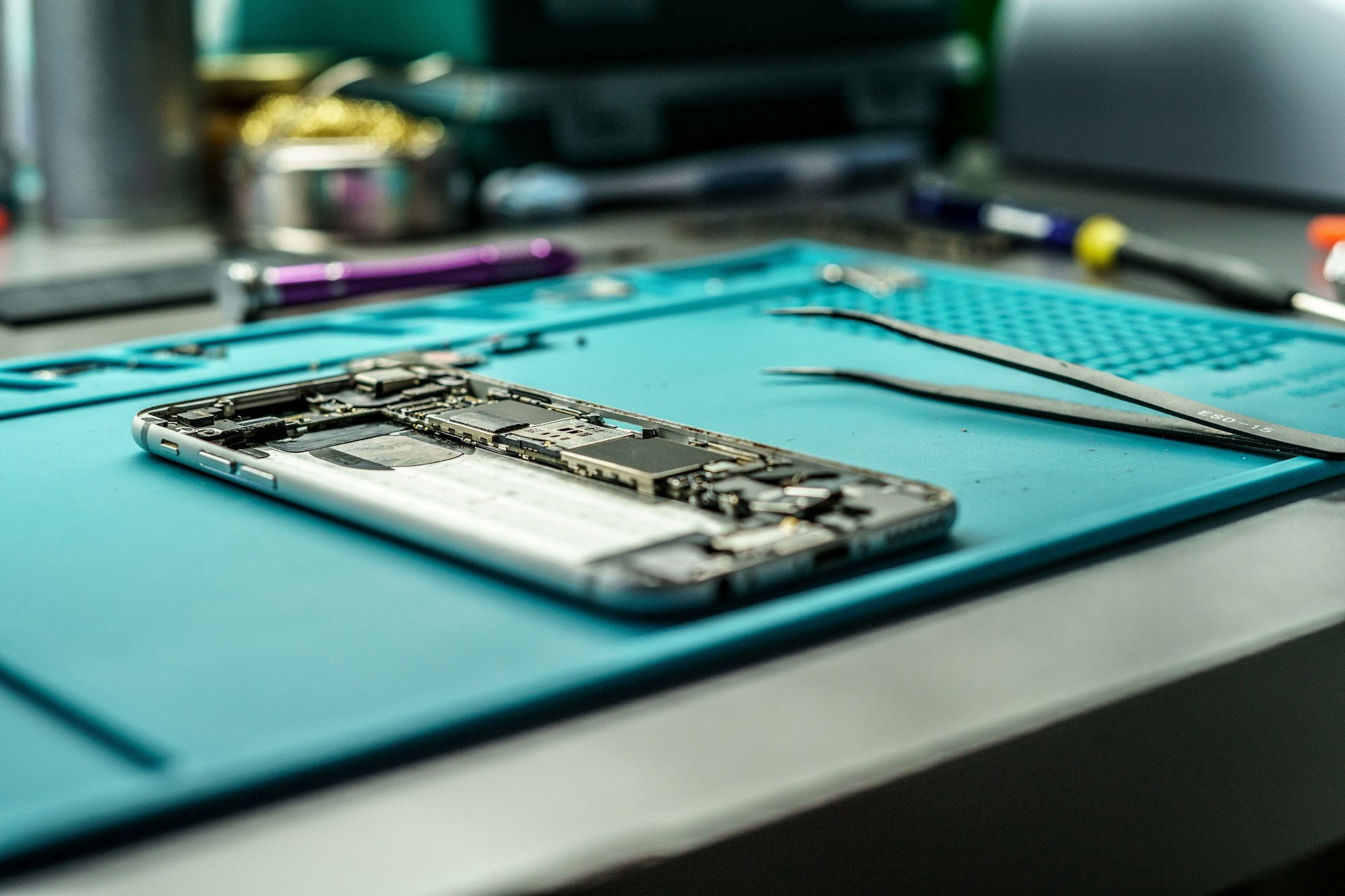The Scoop on Apple Letting Us Fix iPhones Easier
What’s Changing?
Alright, so Apple’s doing something pretty cool starting this fall. They’re changing their fix-it rules so you can now use old iPhone parts for repairs without running into annoying software issues. Before, you had to use brand new Apple parts or else things just wouldn’t work right. This change is a big deal for stuff like screens, batteries, and cameras that break a lot.

Why the Change?
Some new laws, like one in Oregon, are saying “nope” to “parts pairing” – that’s tech talk for Apple’s old way of making sure you only use their special parts. These laws are pushing Apple to chill out a bit and let us use different parts without fuss. It’s a big turnaround from how Apple usually likes to keep a tight grip on using only their stuff for fixes.
What This Means for Fixing Your Phone
How Fixes are Gonna Be Different
Now, if you snag a legit Apple part from somewhere like eBay and pop it into your iPhone, your phone won’t throw a fit. You don’t have to do some crazy tech wizardry to get the part to work. This makes it way easier for anyone to fix their phone without needing fancy Apple tools.
Why This Rocks for Us
This is awesome because it’s going to save us some serious cash. Getting your screen fixed at an Apple Store can cost like $300, but now, local shops can hook you up for less, around $200, using real Apple parts they got elsewhere.
But Wait, There’s a Catch…
Apple’s Still Side-Eyeing Third-Party Parts
Even though Apple’s being cool about using their parts from other places, they’re still not thrilled about non-Apple parts. Your iPhone will give you a heads-up if it notices a stranger part inside, worrying about security stuff and the fact that some off-brand batteries can be duds.
What the Smart Folks Say
Nathan Proctor, a dude who’s really into making repairs fairer, thinks Apple’s old “you must use our parts” rule was pretty lame. He sees this new move as a small win for us, making it cheaper to fix our phones and keeping them alive longer.
The Bigger Picture
Oregon’s Leading the Charge
Oregon’s law is just the start. It says you can fix your gadgets with any parts you want, starting in January. Apple’s got to play ball by 2027, or else they’ll get hit with big fines. This could shake things up, giving us better repair prices and more choices everywhere.
What This Means for the Future
Setting the Scene for Everyone Else
Apple making this change might encourage other tech giants to do the same. It’s all about giving us more rights over our gadgets, saving us money, and helping the planet by reducing waste.
More Laws on the Horizon?
With places like Colorado thinking about similar laws, we might be seeing the start of a big shift. Repairing our gadgets could get a lot easier and cheaper, which is awesome for us and the environment.
So, Apple’s loosening up on fixing iPhones with used parts, all thanks to a push from laws like the one in Oregon. It’s a win for saving money on repairs and keeping our phones running longer, even if Apple’s still a bit wary about parts that aren’t theirs.

Frequently Asked Questions (FAQs)
1. Can I use any used Apple part for my iPhone repair under the new policy?
Answer: Yes, under the new policy, you can use genuine Apple parts obtained from secondary sources like eBay for your repairs. These parts will be recognized by your iPhone without the need for entering part serial numbers into Apple’s system, simplifying DIY repairs.
2. Will my iPhone still work properly with parts not supplied directly by Apple?
Answer: Yes, your iPhone will function properly with genuine Apple parts from other sources. However, Apple will continue to issue warnings if you install non-Apple branded parts, indicating potential security and functionality risks.
3. What are the cost benefits of using third-party repair services under the new policy?
Answer: Repair costs are likely to decrease. For instance, while an Apple Store might charge about $300 to replace a broken screen, independent shops could now offer the same repair with genuine Apple parts for around $200 or less, thanks to the policy change allowing easier access to used parts.
4. What does the Oregon law say about electronic repairs?
Answer: The Oregon law, effective from January, prohibits “parts pairing” practices, allowing consumers to repair their devices with any parts they choose. Apple and other tech companies must comply by 2027, with steep fines for non-compliance, promoting a more flexible and consumer-friendly repair market.
5. How might this policy change affect the electronic repair industry?
Answer: Apple’s shift could set a precedent for other companies, potentially leading to a broader acceptance of third-party parts in repairs. This would not only support consumer rights but also promote sustainability by encouraging the reuse of electronic parts and reducing waste. As more states consider similar legislation, industry-wide changes could standardize more cost-effective and environmentally friendly repair practices.
These FAQs aim to clarify the implications of Apple’s new repair policy and its impact on consumers and the broader tech repair industry.
Sources The New York Times


